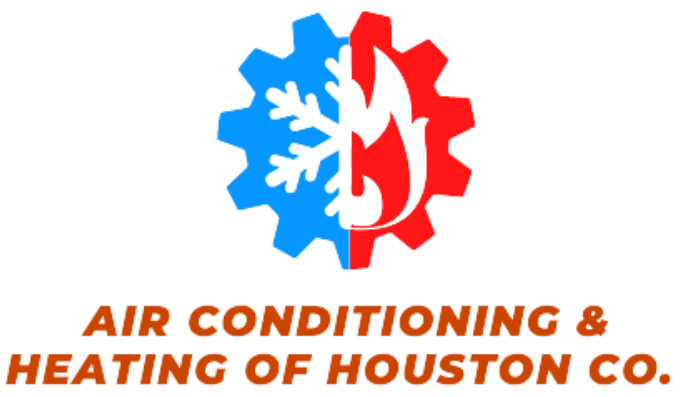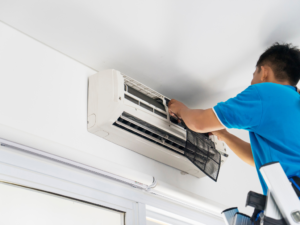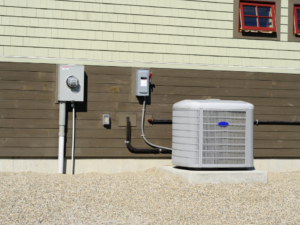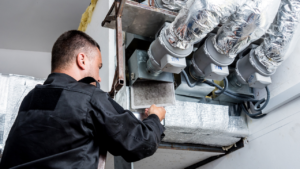Like any other household appliance, an HVAC system requires regular attention and conscientious HVAC maintenance to operate at its best. However, despite our best intentions, issues with our HVAC systems are rare. Are you often facing problems with your HVAC system and wondering what could go wrong?
This article aims to uncover the most common reasons that could be causing these problems. By focusing on proper HVAC maintenance and acknowledging these potential issues, you could save yourself some costly repairs in the long run and ensure a comfortable, climate-controlled environment for your home or office.
The Top Causes of HVAC Problems
A properly functioning HVAC system is essential for two important reasons.
- It keeps the comfort level you select.
- You can save considerable money by reducing your electricity or energy bill.
All parts of your HVAC system must be functional and well-maintained to achieve maximum efficiency, the lowest energy costs, and the longest lifespan. Here are some reasons why you may be experiencing an increase in your energy bills and if your home does not feel as comfortable and cool as you’d like.
1. Dirt Buildup
Ensure your system is clean before you overreact and think it’s a big problem that will cost you a lot of money. A lot of dirt or grime has gathered on your HVAC system. This buildup can cause your HVAC system not to heat or cool the home as quickly and evenly as it used to. As the indoor air quality of your home has been reduced, you may notice that allergy and asthma symptoms are increasing in your family.
You should always use a clean filter. Check your air filters at least every month. Some manufacturers recommend only checking them every three months. Replace them with a new, clean filter if they’re dirty. Remove the air filter from the unit and hold it in front of a light. It’s time to change the air filter if you can’t see the light through it. Check the condenser coils of your heat pump. Dirty coils will reduce your AC’s capacity to move air and decrease efficiency.
2. HVAC Equipment Age
Your HVAC unit could be nearing the end of its life if you have noticed your home becoming less comfortable in temperature over the last few years. Unfortunately, HVAC equipment does not last forever. You may get only a few extra years out of your HVAC unit, even with perfect maintenance and regular upkeep. The average unit lasts between ten and fifteen years. Fortunately, newer models have a much higher efficiency than your current model. If you think it may be nearing its end, get your HVAC unit checked by a professional. Consider replacing it with an upgraded high-efficiency system.
3. Improper Installation
Your HVAC system will only operate efficiently if it is installed correctly. Your energy bills will skyrocket, and your home will be warmer and cooler than expected. You should always hire an insured, licensed professional to install the equipment.
You may also need help with your AC unit if it needs to be installed correctly.
- Short circuit: The electric voltage is crucial for the unit’s operation. It is important to check the voltage. If not, it can cause a circuit short.
- Poor results: The size of the unit can also hurt your results. Installing a unit too small for your home will result in problems with comfort and uneven heating and cooling.
- Duct Leakage: It is possible that the ducts need to be installed properly if you notice temperature variations throughout your home. The ducts will develop air leaks, causing drastic temperature differences from one room to another.
4. Lack of Maintenance
HVAC systems are constantly working to keep your home comfortable. It is important to schedule a professional cleaning and maintenance check to ensure everything works correctly and efficiently. These checks can detect small issues and fix them before they become major ones, which could lead to equipment failure or damage. Are you looking for a heating contractor to check your HVAC system? You can find instructions on the Department of Energy’s website to help you choose the right contractor.
5. Pilot or Ignition Problems
Several factors can cause ignition problems. Dirty burners, burner sensors, or pilots can lead to a failure of ignition, short cycling, or furnace lockout. This could be due to a gas problem or wear and tear on an ignition component like a hot surface ignitor. It is always best to leave these issues in the hands of a service technician who has been trained, as they involve dangerous elements such as natural gas and high voltage.
6. Thermostat Malfunction
There are many types of thermostats – both programmable ones and non-programmable ones. When a homeowner thinks their furnace isn’t working properly, the problem is often with the thermostat or how it’s set. You can avoid paying for an expensive or unnecessary service call by reading your owner’s guide and following the instructions. Batteries in programmable thermostats need to be replaced regularly. Service technicians can quickly diagnose problems if they are still occurring.
7. Mechanical Wear and Tear
Your heating system is dependent on a variety of mechanical components. These components can negatively impact the performance of your unit. Belts and bearings can cause overheating, poor heat, or airflow problems. Checking for worn or stretched-out belts and lubricating bearings and motors as needed should be part of regular maintenance.
8. Unusual Furnace Voices
Some furnace noises are normal, but others can indicate or warn of a mechanical issue. The bearings of an inducer or blower motor can fail if they whine or squeal. A motor replacement may be necessary to prevent a furnace failure. We can also install a new furnace if necessary. Airflow problems or dirty burners can cause other noises. It is important not to ignore these signs, which could indicate a dangerous condition.
9. Blown Fuses and Tripped Breakers
Overworking of the blower can be the most common cause for a furnace to trip a circuit breaker. Your blower will have to work harder if something is blocking the airflow into your system. Most often, a dirty filter is the culprit. The air filter must be cleaned before the blower can force air through. The blower will use more energy and sometimes trip the circuit breakers. Replace your dirty filter with a new one before you reset your circuit breaker. It is best to call a professional if you experience the same problem. They can determine whether the issue is due to a furnace malfunction or the circuit breaker. Duct leaks can also overwork blowers, blocked air registers, or dirty coils.
10. Dirty Coils for Condenser or Evaporator
Likely, your air conditioner should be cooling more efficiently. Dirt and debris may clog your air conditioner’s coils, reducing its efficiency and causing it to wear out faster. After you have shut off the power, you can use a hose to clean the outdoor coil. The electrical disconnect near the condenser or the electric panel can turn the power off. Indoor evaporator coils can get dirty, particularly if furnace filters are not changed regularly. A dirty evaporator can reduce the efficiency of your furnace and air conditioning system. A trained technician will have to clean extremely dirty coils.
11. Blower Run Continuously
A furnace’s blower may be running continuously for several reasons. Check the fan switch in the thermostat before calling for service. When the fan is on, the motor will continue to run. Often, homeowners accidentally turn on the fan switch.
The furnace has a fan relay that activates the blower when the thermostat is set to heat up. If the relay becomes stuck, the blower won’t shut off. The furnace has several safety features and limitations. The circuit board can cool down the furnace if it is activated. The blower will not stop if the safety limit is not reset. A trained technician can evaluate this problem and offer possible solutions.
12. Water Leaks
Condensate is produced by both air conditioners as well as high-efficiency furnaces. Drain pipes ensure that water drains properly. Water can leak from the furnaces if the drain pipes are clogged or cracked. Pouring bleach into the drain can be a good way to keep drain lines clean. The collector box, heat exchanger, or evaporator drainage pan could also be a source of leakage. Contact a service technician to find out the cause of the leak and the repair options.
Conclusion
Investing in a well-functioning HVAC system is important to maintain a comfortable home or office. Being proactive and preventing common HVAC issues can save you money and inconvenience. A well-tuned HVAC unit will maximize efficiency, reduce energy costs and improve comfort.
Take your time if you have noticed any of the above issues. It’s time to hire a professional HVAC contractor. Air Conditioning & Heating of Houston Co.’s team has the expertise, experience, and capacity to troubleshoot HVAC issues and offer effective solutions easily. Our services will not only restore your system’s functionality but also increase its efficiency, which can reduce your energy bills.
FAQs
Why do you need to maintain your HVAC system?
All year long, your HVAC system is in charge of keeping you comfortable. Your system will produce and distribute warm or cool air evenly and steadily with regular maintenance. You’ll also be less likely to come home one day in the winter and find icy air coming out of your vents.
What is the most commonly failed part of HVAC systems?
A dirty furnace filter is one of the most common causes of air conditioner issues. It is a very common problem that can be easily avoided. Dirty filters can reduce the airflow through the evaporator.
What is preventive HVAC maintenance?
Preventative maintenance keeps your HVAC system running smoothly and efficiently all season so that you can start the heating and cooling season with a reliable and efficient system.




